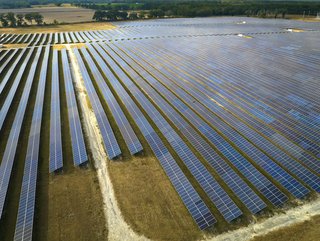G7 ministers set big targets for solar and wind capacity

On Sunday, the environment ministers from the G7 countries reached an agreement to speed up the shift towards renewable energy. They pledged to swiftly increase the usage of solar and wind power, but refrained from specifying a definite schedule for the phase-out of fossil fuels.
According to the official communiqué, the ministers from the top seven global economies, known as the G7, made a promise to boost the adoption of renewable energy across the world while simultaneously reducing its cost. They also vowed to augment the offshore wind capacity by 150 gigawatts and elevate the solar power capacity to over 1 terawatt by 2030.
"In the midst of an unprecedented energy crisis, it's important to come up with measures to tackle climate change and promote energy security at the same time," Japanese industry minister Yasutoshi Nishimura told a news conference.
"While acknowledging that there are diverse pathways to achieve carbon neutral, we agreed on the importance of aiming for a common goal toward 2050," he said.
'Huge statements'
"The solar and wind commitments are huge statements to the importance that they will rely on the energy superpowers of solar and wind in order to phase out fossil fuels," said Dave Jones, who is head of data insights at energy think tank Ember.
"Hopefully this will provide a challenge to Japan, for which offshore wind is the missing part of the jigsaw that could see its power sector decarbonise much quicker than it thought possible."
A target date of 2040 has been set for reducing additional plastic pollution to zero, bringing the target forward by a decade.






